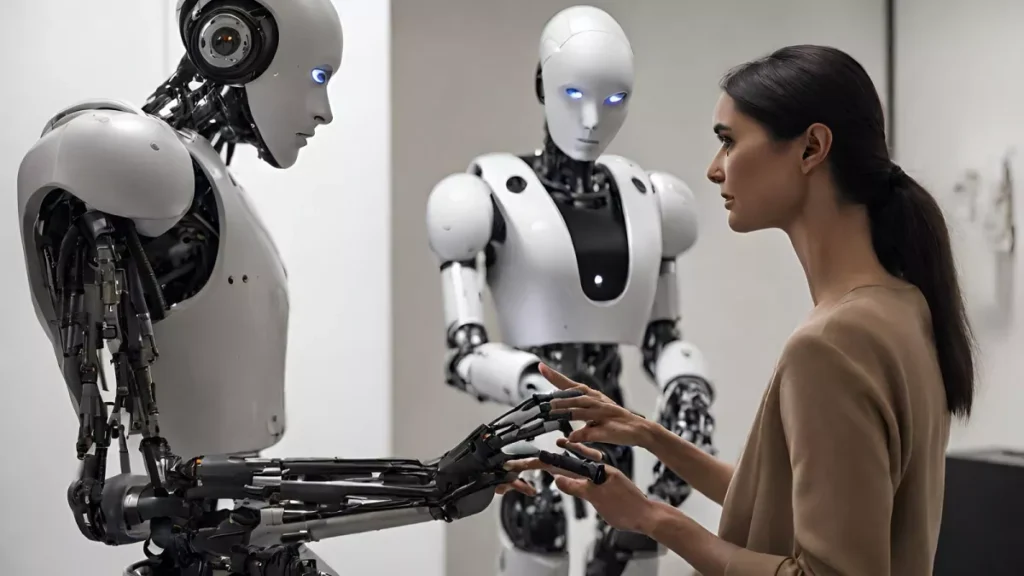There is a discernible change in our perception of these technologies as worries about artificial intelligence (AI) robots potentially taking over different aspects of our lives grow. The public is intrigued by the idea that artificial intelligence (AI) robots could one day perform any activity, from laundry to creative and academic assignments. Who wouldn’t want to give a machine the opportunity to do monotonous home chores, after all? However, the current state of AI technology presents a more nuanced picture, even while the thought of robots taking over these professions would sound like a good prospect.
Executive Editor Brian Sozzi had an insightful discussion with Sizzle AI’s founder and CEO, Jerome Pesenti, on a recent episode of Yahoo Finance’s “Opening Bid.” This conversation offered incisive analysis on the state of robotics and AI both now and in the future. Pesenti provided a viewpoint based on the realities of contemporary technology, in contrast to the theatrical depictions that are frequently found in the media and popular culture. Pesenti asserts that even with AI’s quick development, the kind of robotic integration that some may anticipate is still quite far off. He proposed that it will probably take ten years before artificial intelligence (AI) robots can genuinely revolutionize industries like education, the arts, and even housework in a way that has a big impact daily life.
Pesenti’s statements reflect a broader sentiment within the tech industry: while advancements in AI are indeed being made, the technology remains in a developmental stage where its capabilities are still limited. The expectations that AI robots will soon take over complex and nuanced roles across various domains might be premature. For instance, while AI has made impressive strides in areas such as data analysis and pattern recognition, these achievements do not necessarily translate to the kind of general intelligence and versatility required for more intricate tasks. The ability for AI to autonomously and effectively handle the diverse responsibilities associated with education or artistic creation remains a distant goal.
Furthermore, most of the AI systems in use today are not generalized enough to be able to easily adjust to new and different jobs; rather, they are primarily built for specialized activities. That being said, artificial intelligence (AI) is not as good in unpredictable and complex jobs as it is in more dynamic and diverse ones. Instead, AI performs best in controlled environments with clear parameters. In order to effectively manage a classroom, for instance, an AI robot would need to do more than just deliver instructional materials. It would also need to engage with students in a way that is sensitive to their emotions and context, a task that will be beyond the capabilities of present AI technology.
The conversation with Pesenti also underscores the importance of managing expectations regarding the timeline and capabilities of AI advancements. The vision of AI robots revolutionizing everyday life is compelling, but it is essential to approach these ideas with an understanding of the technology’s current limitations. The incremental progress in AI development suggests that while certain aspects of our lives may be enhanced by robotic assistance, a complete overhaul is still a long way off.
Pesenti’s comments also highlight the wider consequences of AI’s sluggish development. The transformative implications that many have envisioned will take years to materialize due to the sluggish pace of scientific improvement in AI. This fact affects how we frame discussions about these technologies’ potential as well as how we prepare for and integrate them. A balanced viewpoint that takes into account both the limitations and the potential of existing technology is necessary to bridge the gap between the optimistic predictions and the real state of AI capabilities.
“Opening Bid” provides an in-depth examination of the rapidly changing fields of artificial intelligence and robotics for people who are interested in delving deeper into these topics. The Yahoo Finance website has full episodes of the show where these and similar topics are explored. In order to stay up to date on the most recent advancements and professional opinions in the field of artificial intelligence, listeners can also subscribe to the podcast on the platforms of their choice.
The current state of AI technology indicates that we are still in the early stages of this journey, despite the thrilling and alluring prospect of AI robots taking over various aspects of our life. The necessity for a realistic assessment of what to expect in the near future is highlighted by the limitations of current AI systems and the time required for substantial breakthroughs. It will be essential to handle these advancements with optimism and a realistic understanding of the existing capabilities and limitations of AI as the technology continues to advance.
If you like the article please follow on THE UBJ.
